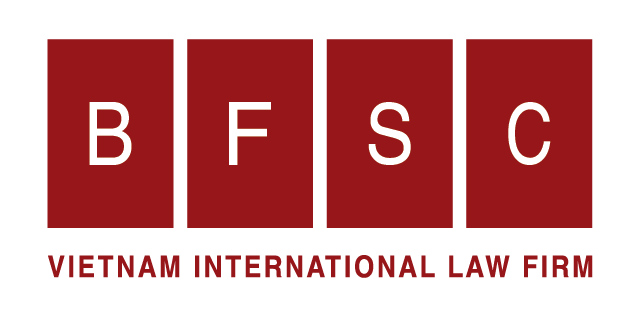Key Admendments to the Securities Law 2024
On November 29, 2024, the 15th National Assembly passed Law No. 56/2024/QH15, amending and supplementing several provisions of the Securities Law No. 54/2019/QH14 (“Securities Law 2019″). These amendments will mostly take effect on January 1, 2025, while specific provisions, including restrictions on professional individual securities investors and additional bond issuance requirements, will become effective on January 1, 2026. This article highlights the key amendments introduced by Law No. 56/2024/QH15 (“Amended Securities Law 2024“) to the Securities Law 2019.
Key Admendments to the Securities Law 2024
1. Regulations on Acts Constituting Market Manipulation
The Securities Law 2019 did not comprehensively define acts of market manipulation beyond the prohibition stipulated in Article 12.3.
The Amended Securities Law 2024 clarifies the concept of market manipulation, aligning it with international best practices and defining it as the execution of any of the following six acts:
a) Using one or multiple trading accounts, either personally or on behalf of another, or colluding to continuously buy and sell securities to create artificial supply and demand;
b) Placing buy and sell orders for the same type of securities on the same trading day or colluding in securities transactions without actual transfer of ownership or with ownership merely circulating among group members to manipulate prices and create artificial supply and demand;
c) Continuously buying or selling securities in large volumes at market opening or closing to manipulate securities prices;
d) Engaging in securities transactions by conspiring with or inducing others to continuously place buy and sell orders that significantly affect supply, demand, and prices, thereby manipulating securities prices;
đ) Directly or indirectly expressing opinions through mass media about a security or its issuing entity to influence its price after having executed transactions and held positions in that security;
e) Using other methods or engaging in trading activities in combination with spreading false rumors or misleading information to the public to create artificial supply and demand and manipulate securities prices.
2. Recognition of Foreign Investors as Professional Securities Investors
The Amended Securities Law 2024 classifies foreign investors as professional securities investors if they meet the condition of being “individuals holding foreign nationality or organizations established under foreign laws engaging in investment and business activities in Vietnam when participating in the Vietnamese securities market.”
3. Restrictions on Professional Individual Securities Investors Regarding Private Corporate Bonds
The Amended Securities Law 2024 imposes restrictions on professional individual securities investors, allowing them to purchase, trade, and transfer privately issued corporate bonds only in one of the following two cases. These restrictions are introduced to enhance market stability, protect retail investors from undue risk, and ensure that only financially capable entities participate in private bond transactions. By imposing these conditions, the law aims to mitigate default risks and uphold investor confidence in Vietnam’s securities market.
a) Privately issued corporate bonds that have received a credit rating and are secured by collateral;
b) Privately issued corporate bonds that have received a credit rating and are guaranteed for payment by a credit institution.
This regulation will take effect on January 1, 2026.
4. Responsibilities of Entities and Individuals Regarding Reports and Documents Related to Securities and the Securities Market
The Amended Securities Law 2024 introduces Article 11a, aimed at enhancing accountability and transparency in securities-related disclosures. This article establishes clear responsibilities for entities and individuals involved in preparing reports and documents related to securities transactions and regulatory filings. Specifically, Article 11a includes the following provisions:
4.1. Clear Obligations to Ensure Information in Reports and Documents
Reports and documents must contain clear, non-misleading information and include all critical content that may affect the decisions of regulatory authorities, organizations, and investors.
4.2. Expanded Scope of Liable Parties
The law extends liability to consulting organizations and individuals involved in document preparation, whereas the Securities Law 2019 only imposed liability on: (i) the issuing entity; (ii) the underwriting organization; (iii) the auditing firm; and (iv) the “certifying organization.”
4.3. Expanded Scope of Liability to All Securities Market Activities
The scope of liability now appears to cover activities such as: (i) private securities offerings, (ii) disclosure of information by public companies or their shareholders, and (iii) secondary market transactions by investors. In contrast, the Securities Law 2019 limited liability to document-related procedures for (i) public securities offerings, (ii) listing registration, and (iii) securities trading registration.
4.4. Limited Liability of Authorities Handling Documents and Reports
Regulatory agencies and individuals processing and approving reports and documents are not liable for violations committed by entities before or after submitting valid documents. The law also defines valid reports and documents as those that (i) include all required paperwork and (ii) contain fully declared information per legal regulations.
5. Public and Private Securities Offerings
5.1. Removal of the 70% Minimum Share Subscription Requirement
The Amended Securities Law 2024 eliminates the requirement that at least 70% of the shares in a public offering be sold when the offering is conducted to raise capital for an issuing entity’s project, provided that shares are offered to existing shareholders in proportion to their ownership.
5.2. Additional Requirements for Bond Issuance
The Amended Securities Law 2024 imposes additional conditions for bond-issuing entities, requiring compliance with government regulations on bondholder representation, debt ratios, issuance value relative to equity, and credit ratings.
5.3. New Document Requirements for Initial Public Offerings (IPO)
The law now requires a “Report on Paid-up Charter Capital” audited by an independent auditing firm as part of an IPO registration dossier.
5.4. New Document Requirements for Initial Bond Offerings
Issuers must now submit a “Contract between the Issuing Organization and the Bondholder Representative” in the bond offering registration dossier.
5.5. Additional Grounds for Canceling Public Offerings
The Amended Securities Law 2024 grants the State Securities Commission (SSC) the authority to cancel a public offering in cases where post-offering securities have not been listed or registered for trading, and violations of Article 27.1 of the law are discovered.
6. Public Companies
6.1. Additional Requirements for Public Companies
The Amended Securities Law 2024 introduces a new requirement that public companies must have at least VND 30 billion in equity capital, in addition to the existing criteria of having at least VND 30 billion in paid-up charter capital and a minimum of 10% of voting shares held by at least 100 non-major shareholders.
6.2. New Documentation for Public Company Registration
The law now mandates a “Report on Paid-up Charter Capital” audited by an independent auditing firm as part of the public company registration dossier.
6.3. Four Grounds for Deregistration as a Public Company
The Amended Securities Law 2024 establishes four scenarios in which a company will lose its public company status:
a) Failing to meet any of the public company conditions outlined in Article 32.1(a);
b) Failing to disclose audited annual financial reports for two consecutive years;
c) Failing to disclose annual general meeting resolutions for two consecutive years;
d) Failing to register shares with the Vietnam Securities Depository or to list/register shares on a stock exchange within one year of SSC confirmation of public company status or completion of a public offering.
For any feedback on this article, please contact the author:
Lawyer Phan Quang Chung
BFSC Law LLC
Phone: (+84-24) 7108 2688 (Ext: 102)
Email: [email protected]
Disclaimer: The content of this article is for reference only and does not constitute legal advice from the author or BFSC Law LLC on any specific legal matter. BFSC Law LLC shall not be liable for any use of part or all of this article for any actual legal situation.

